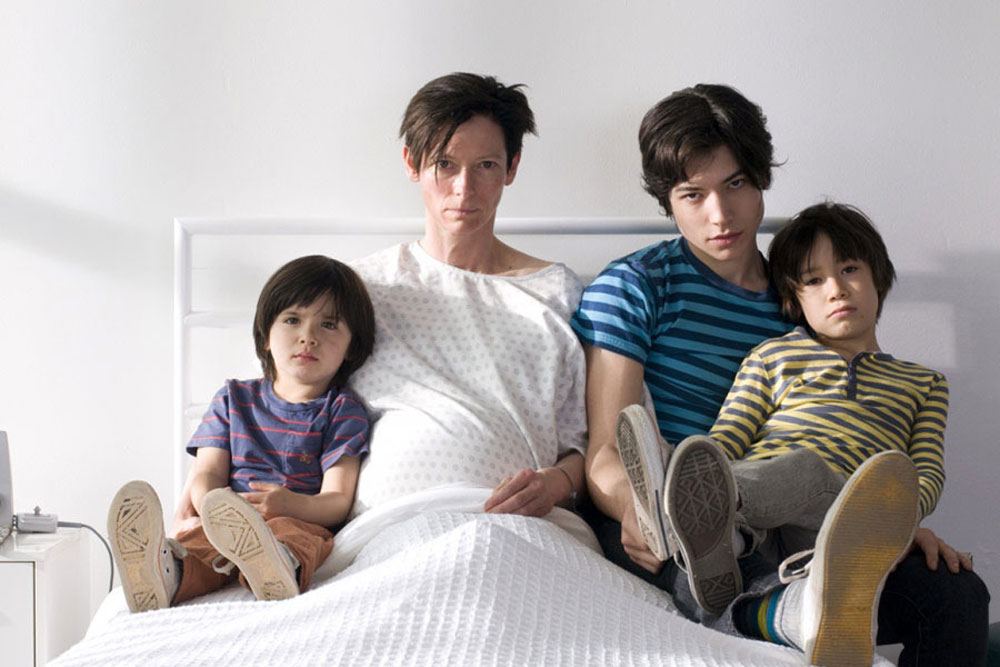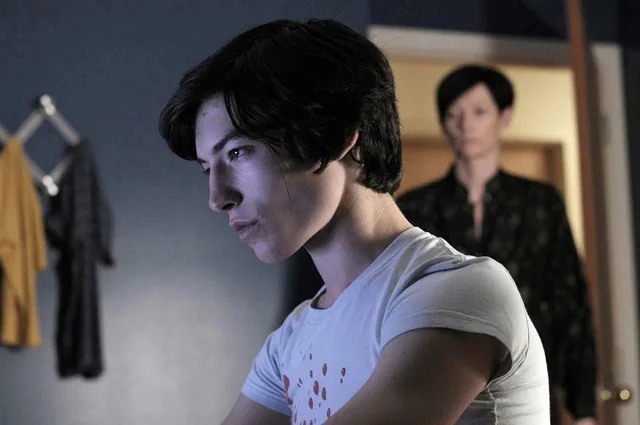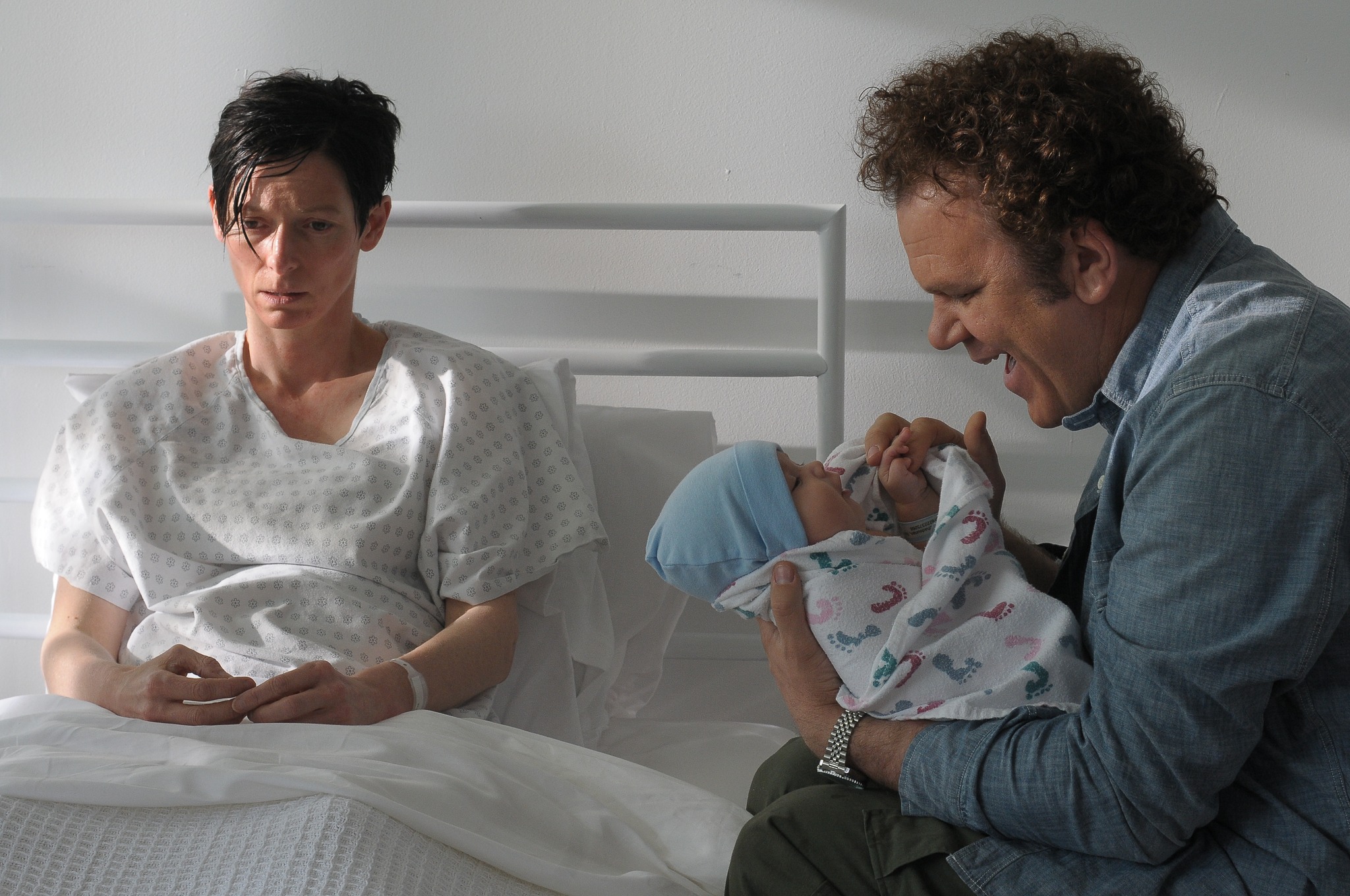We Need to Talk About Kevin

We Need to Talk About Kevin (2011) is a psychological thriller directed by Lynne Ramsay, based on the novel of the same name by Lionel Shriver. The film stars Tilda Swinton as Eva, a mother grappling with the aftermath of her son Kevin’s horrific actions. Told through a series of flashbacks and present-day sequences, the film explores the complexities of motherhood, guilt, and the emotional toll of a devastating tragedy. With its haunting performances, striking cinematography, and a chilling atmosphere, We Need to Talk About Kevin presents a deeply unsettling narrative about the consequences of violence and the search for responsibility.
The story centers on Eva, who is forced to confront the aftermath of her son Kevin’s violent rampage at his high school. The film is structured around Eva’s reflections, as she looks back on Kevin’s troubled childhood and the increasingly strained relationship between them. Throughout the film, Eva is depicted as an isolated figure, alienated from her community and from her own son. The narrative shifts between the present day, where she faces the consequences of Kevin’s actions, and flashbacks that reveal the gradual unraveling of their relationship over the years.
Kevin, portrayed by Ezra Miller as a teenager and by Jasper Newell as a child, is a deeply troubling figure, showing signs of malevolent behavior from an early age. His relationship with Eva is fraught with tension, and he appears to actively reject her love and attempts at discipline. As Kevin grows older, his increasingly disturbing actions, from acts of cruelty to his younger sister to his eventual violent outburst, create an atmosphere of dread and inevitability. The film leaves the audience questioning the nature of Kevin’s behavior—whether it is a result of a mother’s failure, inherent evil, or a combination of both.
Tilda Swinton’s performance as Eva is central to the emotional impact of the film. Swinton brings a remarkable depth to her character, portraying a woman overwhelmed by guilt and self-blame. Her portrayal captures Eva’s vulnerability, isolation, and inner turmoil, making her both a sympathetic and tragic figure. The film shows Eva’s struggle to accept her role in Kevin’s development and her failure to prevent his violent outburst. Swinton’s ability to express Eva’s deep emotional conflict without overtly stating it adds a layer of complexity to the film, allowing the audience to interpret her feelings and motivations.

The cinematography of We Need to Talk About Kevin is visually arresting and plays a significant role in the film’s psychological intensity. The film is often shot in tight close-ups, focusing on Eva’s face as she processes her emotions, which creates a sense of claustrophobia and emotional suffocation. The color palette is cold and stark, with muted tones and harsh lighting, reflecting the bleakness of Eva’s world and her inability to escape the consequences of Kevin’s actions. The visual style of the film mirrors the inner chaos of Eva’s mind, where memories of Kevin’s troubled childhood are forever etched in her consciousness.

The film’s structure, with its fragmented narrative, also serves to enhance the sense of emotional dislocation and confusion. As Eva’s memories unfold in a non-linear fashion, the audience is placed in her shoes, experiencing the trauma and guilt she feels as she attempts to understand the events leading up to Kevin’s violent act. This disjointed storytelling builds tension, forcing the viewer to piece together the fragments of Eva’s past while simultaneously confronting the devastating reality of the present. The narrative structure ultimately emphasizes the emotional and psychological weight of the tragedy.
One of the key themes of We Need to Talk About Kevin is the idea of maternal guilt and responsibility. Eva is constantly questioning her role in Kevin’s upbringing, wondering if she could have done something differently to prevent his violent behavior. The film raises important questions about nature versus nurture, asking whether Kevin’s actions were an inevitable result of his personality or a consequence of his environment. This exploration of guilt and responsibility is further complicated by the fact that Eva is often portrayed as a mother who, despite her best efforts, struggles to connect with her son. The film paints a complex picture of motherhood, one that is both deeply flawed and profoundly painful.

In conclusion, We Need to Talk About Kevin is a haunting and thought-provoking film that examines the devastating effects of violence, the complexities of motherhood, and the nature of guilt. With its powerful performances, especially by Tilda Swinton, its striking cinematography, and its unsettling narrative, the film creates a visceral emotional experience for the viewer. It challenges us to confront difficult questions about responsibility, love, and the consequences of our actions, making it a deeply unsettling and memorable exploration of human nature and the dark side of family life.











